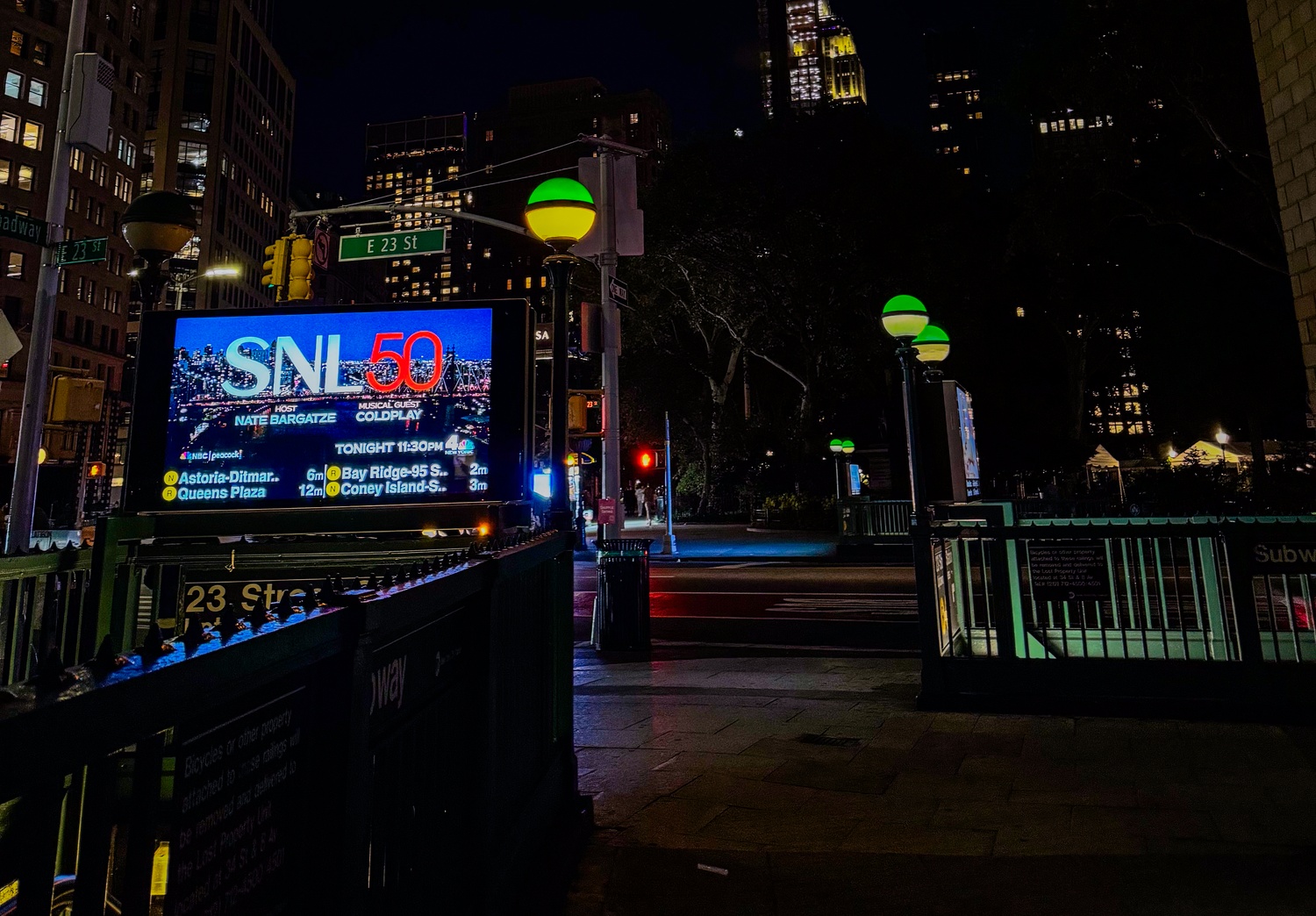
News
Garber Privately Tells Faculty That Harvard Must Rethink Messaging After GOP Victory

News
Cambridge Assistant City Manager to Lead Harvard’s Campus Planning

News
Despite Defunding Threats, Harvard President Praises Former Student Tapped by Trump to Lead NIH

News
Person Found Dead in Allston Apartment After Hours-Long Barricade

News
‘I Am Really Sorry’: Khurana Apologizes for International Student Winter Housing Denials
‘Saturday Night’ Review: A Glimpse Behind the Curtain of a Classic
Dir. Jason Reitman — 3.5 Stars

The latest in a wave of biographical films, “Saturday Night” is a fast-paced, quippy ode to the people and events that led up to “Saturday Night Live’s” debut. Originally dubbed “NBC’s Saturday Night,” the show premiered on Oct. 11, 1975. The film follows the premiere’s cast and crew as they navigate broadcasting bureaucracy, strict time constraints, and a comedically catastrophic string of accidents.
The opening scene places viewers outside NBC’s New York studio at 10 p.m, and upon his entrance, producer Lorne Michaels (Gabriel LaBelle) is bombarded with frantic questions from his crew. The most pressing: How does he cut three hours of material down to a 90-minute show? This set-up immediately captures the chaos and urgency of live television production, drawing audiences into the high-stakes environment.
Visually, the film excels in creating this tension. There is a clear mastery of dynamic cinematography, with unpredictable handheld framing and rapid shifts between ensemble members, mirroring the unpredictability of the studio floor. Still frames depicting moments of silence peppered throughout the film provide slivers of relief, yet not for long. The lighting subtly reflects the emotions of key moments — cold and clinical during bureaucratic clashes, warm and frenetic as the crew scrambles to meet deadlines.
A minimal but striking sound design, punctuated by a bass-heavy score and relentless ticking of an onscreen countdown accompanied by the visual of a digital clock, keeps views on edge.
While Michaels struggles to navigate NBC’s demands, his rambunctious crew of comedians and performers rush to prepare for the show. Following the natural progression of the night, “Saturday Night” highlights the precarious balance required for this rough and tumble cast to make live television work.
John Belushi (Matt Wood) remains unpredictable and volatile, refusing to sign his contract. Chevy Chase (Cory Michael Smith) is pompous yet charming, distracted by his girlfriend and ambitious to climb the career ladder. A level-headed Dan Aykroyd (Dylan O’Brian) juggles his relationship with writer Rosie Shuster (Rachel Sennot), who has an unconventional marriage with Lorne Micheals. Garret Morris (Lamorne Morris) is a seasoned singer and performer fighting to find his place amongst his young co-stars, while Lerain Newman (Emily Fairn), remains quiet and lovestruck by Aykroyd. Gilda Radner (Ella Hunt) stands out as she tries to redefine the role of women in comedy, and Jane Curtin (Kim Matula) exudes confidence, seemingly content with her roles both on-and-offscreen.
Despite these compelling dynamics, the film struggles to establish all its characters with equal depth, especially the female trio. While the men have distinct qualities and moments which show how they react when challenged, the three female characters are often defined by their relationships with male co-stars, appearing in fleeting moments that lack any real depth. This imbalance undermines the ensemble, though the actors truly seem to embody their characters. Actors who have played popular roles in the past, such as O’Brien and Morris, embody their unique characters to the point at which audiences are forced to empathize with their individual dilemmas. There is no room for Dan and Garret to be associated with any other role O’Brien and Morris previously held.
With unfinished sets, broken lighting, and a plethora of drugs cycling through hands and noses, “Saturday Night” does not lack drama. However, it often fails to follow through on subplot at times. Lerain’s infatuation with Dan is introduced but never resolved, and Dan and Rose’s relationship fades into the abyss after a brief mention. These fractured storylines add to the underlying tension but leave the narrative feeling incomplete.
“Saturday Night” is a dramatized yet compelling retelling of the show’s first episode. The film’s “anything that can go wrong does” plot is predictable yet entertaining, bolstered by dynamic documentary-style cinematography. While its minimal context, forgotten subplots, and overall confusing nature may alienate casual viewers, “Saturday Night” is sure to dazzle and entertain as a high-energy homage for “SNL” fans.
Want to keep up with breaking news? Subscribe to our email newsletter.
